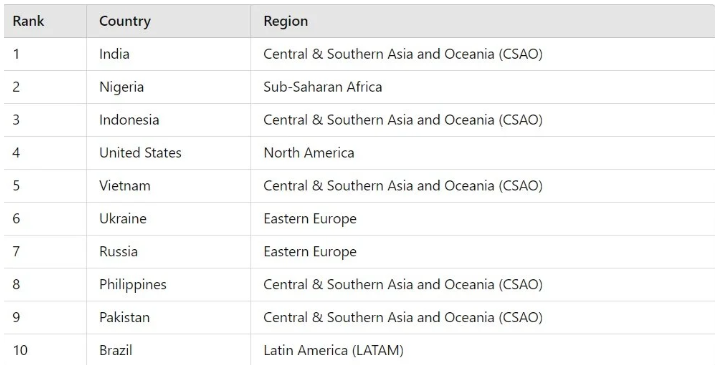India, Nigeria, and Indonesia emerged as the top three countries for cryptocurrency adoption.
Chainalysis’ 2024 Global Crypto Adoption Index calculated how ordinary people in 151 nations are using cryptocurrencies, factoring in population size and purchasing power.
Chainalysis’ new report shows the numbers
Chainalysis shared findings from its latest “Geography of Cryptocurrency Report” on Wednesday.
The report is centered around the Global Crypto Adoption Index, which has been updated every year for five years now.
This index ranks countries by looking at how many people are using crypto day-to-day, and the data comes from on-chain transactions and activity on centralized and decentralized platforms.
Countries are scored on their crypto use, taking into account the size of their populations and their purchasing power. Chainalysis shared that this year, 151 countries were ranked based on available data.
The 2024 index also changed how it looks at DeFi activity and decided not to factor in peer-to-peer trading since it has seen a big drop in recent years.
India, Nigeria, and Indonesia led the list, while Central and Southern Asia and Oceania regions showed dominance, with seven of the top 20 countries coming from that area.
Why crypto activity is surging worldwide?
What makes this report quite interesting is how crypto use is rising globally, not just in wealthier nations.
The report reveals that crypto activity picked up in all income levels, with low-income countries seeing an increase in the use of stablecoins.

Sub-Saharan Africa and Latin America are two regions where this trend is especially noticeable, and the analysts think this may be linked to the growing role of stablecoins as they provide a safe way to transfer value without the volatility seen in other cryptocurrencies.
One key event boosting Bitcoin activity was the launch of the Bitcoin ETFs in the U.S., leading to a visible spike in transactions globally.
This signals that crypto is becoming more and more integrated into mainstream finance, making it more accessible to everyday users.
Crypto is easier than traditional finance, and in some cases, safer
In past years, we’ve seen similar patterns of adoption in regions with less access to traditional banking systems.
In countries like Nigeria and Indonesia banking infrastructure may not reach everyone, but they’re now turning to crypto as an alternative way to manage and move money.
The increasing popularity of stablecoins also shows how important it is for people in these regions to have a reliable store of value, especially in areas where local currencies can be unstable.
It’s worth considering that as more decentralized finance tools and platforms emerge, these countries might see even more engagement with crypto.


